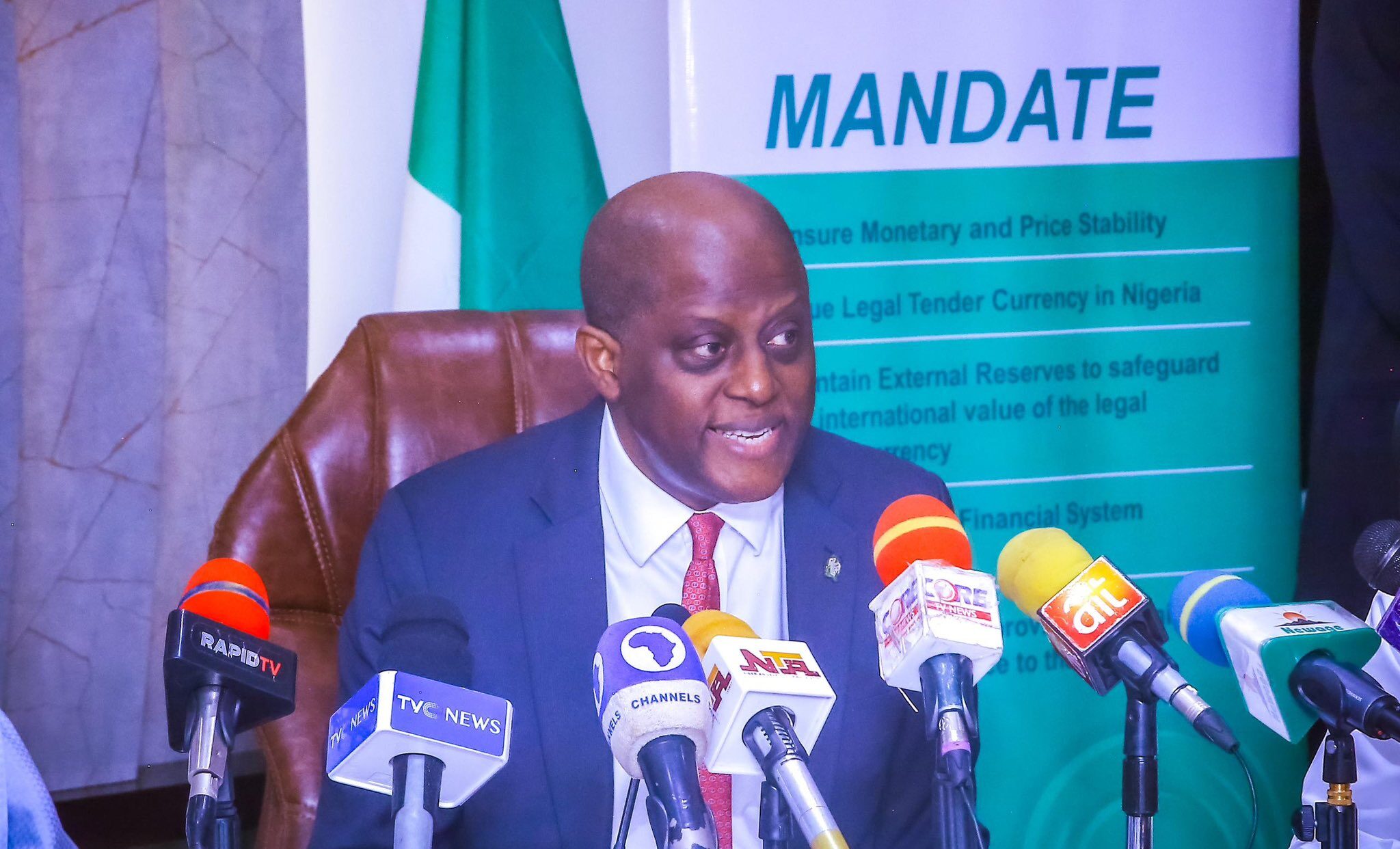Business
Why CBN’s interest rate hikes may not bring down inflation
Published
2 years agoon

Nigeria’s central bank monetary policy committee will announce to the world on Tuesday, May 21, 2024, whether they will continue with their hawkish monetary policy of raising rates or shock everyone by leaving it untouched.
At 24.75%, Nigeria’s benchmark interest rate is at an all-time high and very few people will bet against keeping it unchanged. The apex bank has made it clear that combating Nigeria’s sticky high inflation rate is its primary objective in 2024.
It also hopes higher rates will also help stabilize a battered naira which many consider a natural pass through to high inflation.
READ ALSO: Analysts predict 25.75% raise in MPR at CBN’s MPC meeting
For example, if inflation is 20% and the interest rate is 25% then there is a positive real rate of 5%. This means investors are seeing the value of their investment grow by a net 5% per annum.
However if inflation is 30% and interest rates are still 25%, then you have negative real rates. This negative real rates scenario discourages investors from keeping Naira assets.
In economic reality, positive real rates are a key reason why central banks continually adjust interest rates to ensure folks continue to keep assets in their currency. In our case, interest rates higher than inflation will encourage folks to hold Naira assets.
The issue however is that to achieve positive real rates, both interest rates and inflation need to be addressed simultaneously. Whereby the Central Bank will advise its preferred inflation target and consequently its likely interest rate target.
For Nigeria, the central bank is yet to announce an official inflation target or what actions are required to arrive at an inflation rate target. Neither has it communicated an interest rate target. Thus far it has simply said it will adopt an “inflation focused monetary policy”. Thus zero specific AND measurable objectives communicated by the CBN.
READ ALSO: Businesses yet to recover from previous interest rate hikes, CPPE tells CBN
As the MPC meets this week, the disparity between the MPR and the inflation rate stands at a staggering 8.9% ( approximately 900 basis points). No surprises here, the apex bank is seemingly chasing an inflation shadow with no clear target.
Nigeria’s current approach to attaining positive real rates by only raising interest rates, as currently being implemented by the Central Bank of Nigeria (CBN), is reactionary at best. This is because as mentioned both inflation and interest rates need to be tackled simultaneously and not in silos as is currently the case.
Notably, the last time the MPR was higher than the inflation rate was the period between March 2018 and May 2020 (just before the end of the Covid-19 lockdown). This was a period characterized by a stable exchange rate and a moderate money supply.
However, when Covid-19 struck in 2020, Nigeria just like most countries around the world embarked on an expansive monetary policy that ushered in the growth in the nation’s money supply.
Nigeria’s inflation is driven by increased costs of production and disruptions in supply chains. This is further compounded by an extraordinary spike in monetary policy with an incredibly anaemic GDP growth rate. In other words, too much money chasing too few goods and not enough goods being produced for a variety of reasons ranging from insecurity to logistics to power to human capacity to technology and velocity challenges.
READ ALSO: Ex-CBN Gov. Emefiele arraigned for printing N684b notes with N18.96b
In fact, Nigeria’s current inflation is heavily driven by rising food prices…this food inflation is markedly getting worse in urban areas compared to rural areas reflecting the rising challenges in transporting and preserving food to our cities—sectors that require more investments at affordable rates of borrowing.
Thus, while the CBN’s intent to control inflation through higher interest rates is understandable, it overlooks the structural issues plaguing the economy.
Addressing Nigeria’s inflation problem requires a holistic approach that goes beyond monetary policy. Structural reforms are crucial to resolving supply-side constraints.
This includes investing in infrastructure, improving agricultural productivity, enhancing supply chain efficiency, and reducing bureaucratic bottlenecks that increase the cost of doing business. Only by tackling these fundamental issues can the inflationary pressures be alleviated in a sustainable manner.
The previous central bank administration overstepped its role by taking on ultra large interventions in pursuit of a development finance mandate. Thus exploding the money supply by financing federal and state government deficits through monetary policy.
Research reports by the CBN itself have noted that the efficacy of interventions was muted at best and in some cases unsuccessful.
The current central bank administration has clearly stated that it will not follow this approach, preferring to collaborate with organizations and institutions better suited to economic development through fiscal policy and budgets.
This emphasizes the crucial role of the Minister of Finance who is also the coordinating minister, as well as, other key government ministries.
The government must actively seek foreign direct investment alongside the central bank’s monetary policies, which need to be tapered. Additionally, the government’s large fiscal deficits need to be curtailed.
The central bank cannot pursue higher interest rates to curb inflation while the government simultaneously adds tens of trillions in fiscal deficits, largely funding recurrent expenditure and accumulating more debt. Recent borrowings are now at current interest rates of over 19%.
The government should focus more on public-private partnerships, leveraging capital markets as the ideal conduit for capital formation. Projects that have an immediate impact on economic growth and inflation reduction should be prioritized, with the president providing the highest level of executive backing.
Finally, the CBN’s strategy of raising interest rates to combat inflation is one-dimensional and short-term in nature. Especially as higher interest rates without end-state targets simply add to borrowing costs which companies will need to recoup through pricing to consumers. Thus a vicious cycle of pass-through costs.
Nigeria’s inflation requires a multidimensional approach: while some level of interest rate adjustment may be necessary, it is imperative to simultaneously address the structural supply-side issues that are the real drivers of inflation.
Without these comprehensive reforms, Nigeria’s inflation battle will remain an uphill struggle, and the cost to businesses and consumers will continue to rise.
Trending

 Latest3 days ago
Latest3 days agoYoruba film industry mourns as popular actress aunty Ajara passes away

 Trends4 days ago
Trends4 days agoTonto Dikeh reunites son with Churchill after decade-long split

 Energy1 week ago
Energy1 week agoNNPC unveils gas master plan to boost Nigeria’s energy sector

 Education1 week ago
Education1 week agoAchievers University expels 15 female students over indiscipline

 Business6 days ago
Business6 days agoRite Foods positions industry as catalyst for Nigeria’s clean energy transition

 Football6 days ago
Football6 days agoArsenal’s Osman Kamara completes permanent move to Blackburn Rovers

 Health5 days ago
Health5 days agoControversial preprint revives vaccine–autism debate, draws sharp pushback from medical experts

 Featured6 days ago
Featured6 days agoMidnight raids, teargas: Lagos deploys military-era tactics in mass evictions

